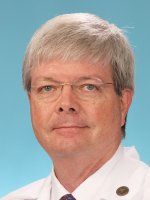Rolla E. Dyer Lecture
Established in 1950 in honor of former NIH director Dr. Rolla E. Dyer, a noted authority on infectious diseases. The lectureship, part of the Wednesday Afternoon Lecture Series, features internationally renowned researchers who have contributed substantially to medical as well as biological knowledge of infectious diseases.

The primary shield: role of our microbes in heath and diseases
Dr. Belkaid work explores the field of immune regulation and has defined fundamental mechanisms that regulate tissue homeostasis and host immune responses. Her work uncovered key roles for the commensal microbiota and dietary factors in the maintenance of tissue immunity and protection to pathogens.

SPECIAL TUESDAY LECTURE - Functional dynamics of the gut microbiome in health and disease
Current research interests are focused on characterization of the structure and function of the microbial communities that are found in the human environment, as part of the NIH-funded Human Microbiome Project, including projects specifically focused on obesity, metabolic syndrome, inflammatory bowel disease, the interactions between the human immune response and the gut microbiome, and the impact of probiotics on the structure and function of the intestinal microbiome.

The mammalian virome in genetic analysis of health and disease pathogenesis
The Virgin lab issues at the interface between virology and immunology, working from the hypothesis that viruses manipulate the immune response using immunoevasive gene products as the immune response attempts to eradicate the virus. Please see the informative and amusing animated video at http://pathology.wustl.edu/labs/virgin.

Antiviral defense mechanisms at the mucosal surfaces
Research over the past two decades has led to the fundamental understanding that initiation of immune responses to infectious microorganisms relies on pathogen recognition by innate microbial sensors, collectively known as pattern recognition receptors (PRRs). PRRs fall into several families, each of which recognizes distinct pathogen-associated molecular patterns (PAMPs). Stimulating PRRs results in transcriptional activation of genes involved in innate defense as well as those that activate antigen-presenting cells for successful priming of “adaptive” T- and B-cell responses.
The page was last updated on Thursday, January 29, 2015 - 2:25pm




